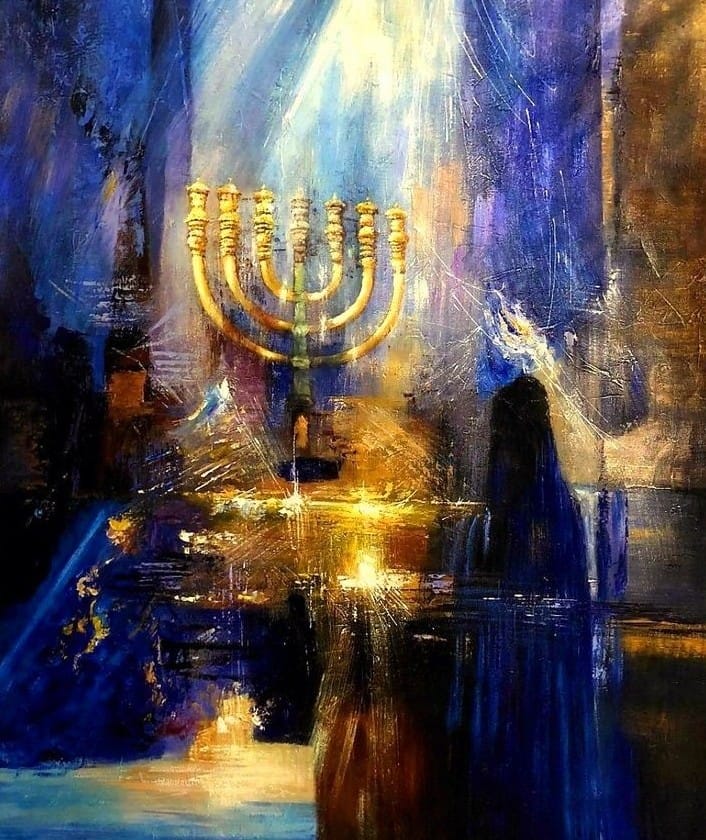In the Shadow of God

In the very first pages of Torah, book Bereshit, Genesis in English, we are told something astonishing:
“And God created the human in His image (tzelem Elohim), in the image of God He created him; male and female He created them.”
— Genesis 1:27
The Hebrew word for “image,” צֶלֶם (tzelem), comes from the same root as צֵל (tzel), meaning “shadow.” The connection is beautiful. Just as a shadow is cast when light falls on an object, so too humanity is a kind of “shadow” of God on earth — a reflection, a figure that wondrously hints at His perfection and beauty.
This root appears again in the name of the great craftsman of the Tabernacle: בְּצַלְאֵל (Bezalel), literally “in the shadow of God” (Exodus 31:2). His whole life’s calling was to create a space — the Tabernacle — where Israel could approach God’s presence. To work “in the shadow of God” means to live and create so close to Him that even our human artistry reflects divine glory - where the human can experience the beauty of being in His shadow. Tabernacle, where the earth and Heaven meet.
But there is yet another word from the same root: צַלְמָוֶת (tsalmavet), often translated “shadow of death.” Think of Psalm 23:4:
“Even though I walk through the valley of the shadow of death (b’gei tsalmavet), I will fear no evil, for You are with me.”
Here, the “shadow” is not only light and reflection but also darkness and fear. Life carries both realities: the dignity of tzelem Elohim (being God’s image) and the fragility of walking through tsalmavet (the shadow of death). Yet both remind us of one truth — God is near. Whether in the radiance of creation, in the holy craft of worship, or even in life’s darkest valley, His presence casts a shadow we can dwell within.
To live “in God’s shadow” is not to live in fear, but in nearness, in His presence. Shadows appear only when light is close. When we walk daily with God, we stand in His tzel — His presence that covers, guides, and surrounds us. We are tzelem Elohim by creation, Bezalel by calling, and upheld even in tsalmavet by His shepherding love.